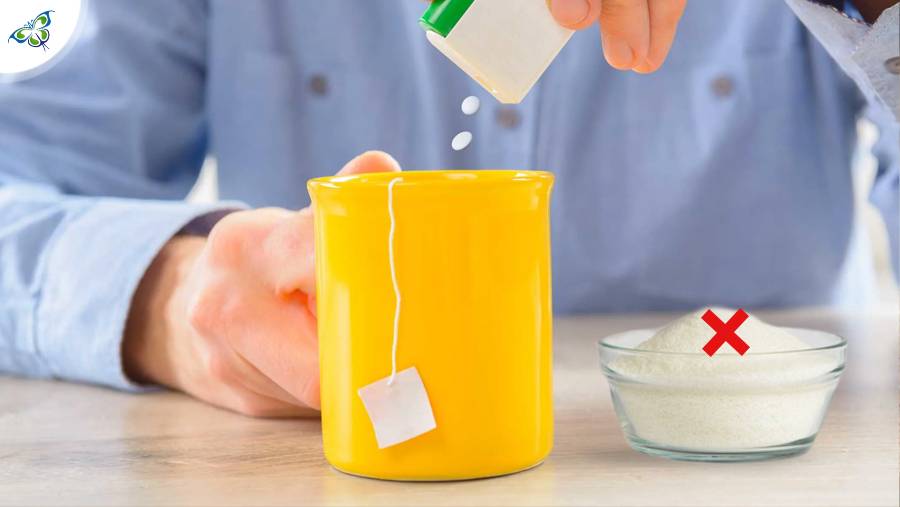
Hello
Select Address

When it comes to sweeteners, you have certainly come across the common references to “natural” sweeteners and “artificial” sweeteners. However, are natural sweeteners ‘natural’? In fact, such sweeteners are promoted as natural, rather ‘healthier’ alternatives of sugar. Nevertheless, the term 'natural' remains questionable as these sweeteners too undergo some artificial processing and refining as well.
Which sweeteners are natural?
According to FDA, sweeteners that are considered natural and safe are maple syrup, molasses, honey, fruit juices, and nectar. The fact that you are hunting for in this article is how healthy are natural sweeteners.
How healthy are natural sweeteners?
Well, if you are choosing a natural sweetener based on its health claims there’s nothing much that you can base your choice upon! Going by health benefits, natural sweeteners do not differ much from ordinary sugar. Nutritionally speaking, both natural sweeteners and sugar are all the same – their vitamin and mineral content are alike.
Take for instance – honey and sugar. When they are processed by your body, both break down into glucose and fructose. Quite similar to plain sugar, consuming too many natural sweeteners results in similar types of problems – weight gain and obesity, increased triglycerides, tooth decay, etc.
Did you know honey often contains small amounts of bacterial spores? These spores may even cause botulism toxin!
Artificial sweeteners are chemicals that stimulates the sweetness-taste receptor of your tongue such that you get the sweet taste, but your body cannot break the molecules down into calories. Since the latter does not happen, you are saved from calorie-intake and/or weight-gain! Although artificial sweeteners are labelled safe by both the U.S and other international food authorities, individuals with rare metabolic disorders need to avoid them!
An artificial sweetener like the sucralose might reduce insulin sensitivity and also affect the gut bacteria. There are some who are allergic to sulfonamides – the class of compounds to which saccharin belongs. They could result in rashes, diarrhoea, and breathing difficulties!
Plain sugar is sucrose. Artificial sweeteners are one type of sugar substitute that does not contain sucrose but some form of processed natural substance which maybe herbs or even sugar itself! Therefore, since an artificial sweetener is not sucrose, it does not add calories to your diet either.
An additional virtue is that artificial sweeteners are way sweeter than plain sugar. You would just need a pinch of some artificial sweetener to match the sweetness of about a spoonful of table sugar! Thus, they are often referred to as intense sweeteners since they are a lot sweeter than plain sugar.
Why would you switch to artificial sweeteners?
The greatest bliss of artificial sweeteners is that they don't pose health hazards like the chances of tooth decay and cavities, obesity, etc. are kept at bay. In the case of diabetic patients, artificial sweeteners do not have carbohydrates. So, the fear of raising blood sugar levels no longer exists. However, one must be careful enough to consult a physician before switching to any artificial sweetener.
Of late, some theories do opine that artificial sweeteners may pose certain health risks. Early in the 1970s studies revealed that some bladder cancer in rats could be related to the excessive use of saccharin. As a result, FDA banned cyclamates as an artificial sweetener in 1969.
Despite all carcinogenicity studies in later years, there is no proven scientific evidence of artificial sweeteners being directly responsible for serious health concerns!
[Read More: talking glucose meter]
Why is stevia a novel sweetener?
The source of stevia is a bush found in South America that’s scientifically named Stevia rebaudiana Bertoni. The extra of this tree leaf is about 300 times sweeter than ordinary sugar! Although the FDA has regulated stevia as safe (GRAS: Generally Recognized as Safe), the whole-stevia or crude stevia extracts (to be used as food additives) have not received approval yet!
What are sugar alcohols?
This is another type of sugar substitute, sugar alcohols. Yes, they do contain carbohydrates and calories but in much lesser proportion than that of sugar. They have thus received the FDA regulation. Sugar alcohols naturally occur in fruits and vegetables although they could be artificially manufactured as well. Sugar alcohols (you needn't worry, they do not contain ethanol) can be used as a mild alternative to sugar if required.
When it comes to sweeteners it’s a touch difficult to keep track of the natural and the artificial ones. In general, the purpose of sweeteners is to sweeten your food cutting a little less on calories (as compared to sugar). Though there’s not much difference between the artificial and natural sweeteners, the former, quite naturally contains even lesser calories than the natural ones. An example of natural and artificial sweeteners would suffice in explaining the rest. Aspartame, sucralose, saccharin are artificial sweeteners, whereas, honey, dates, and maple syrup are the natural ones.
You need to balance!
Whereas, on one hand, artificial sweeteners and sugar substitutes can help you with positive outcomes in weight management, they may cause sweet cravings as well! You need to be watchful; if artificial sweeteners are creating that strong desire in you, it’s better to avoid them!